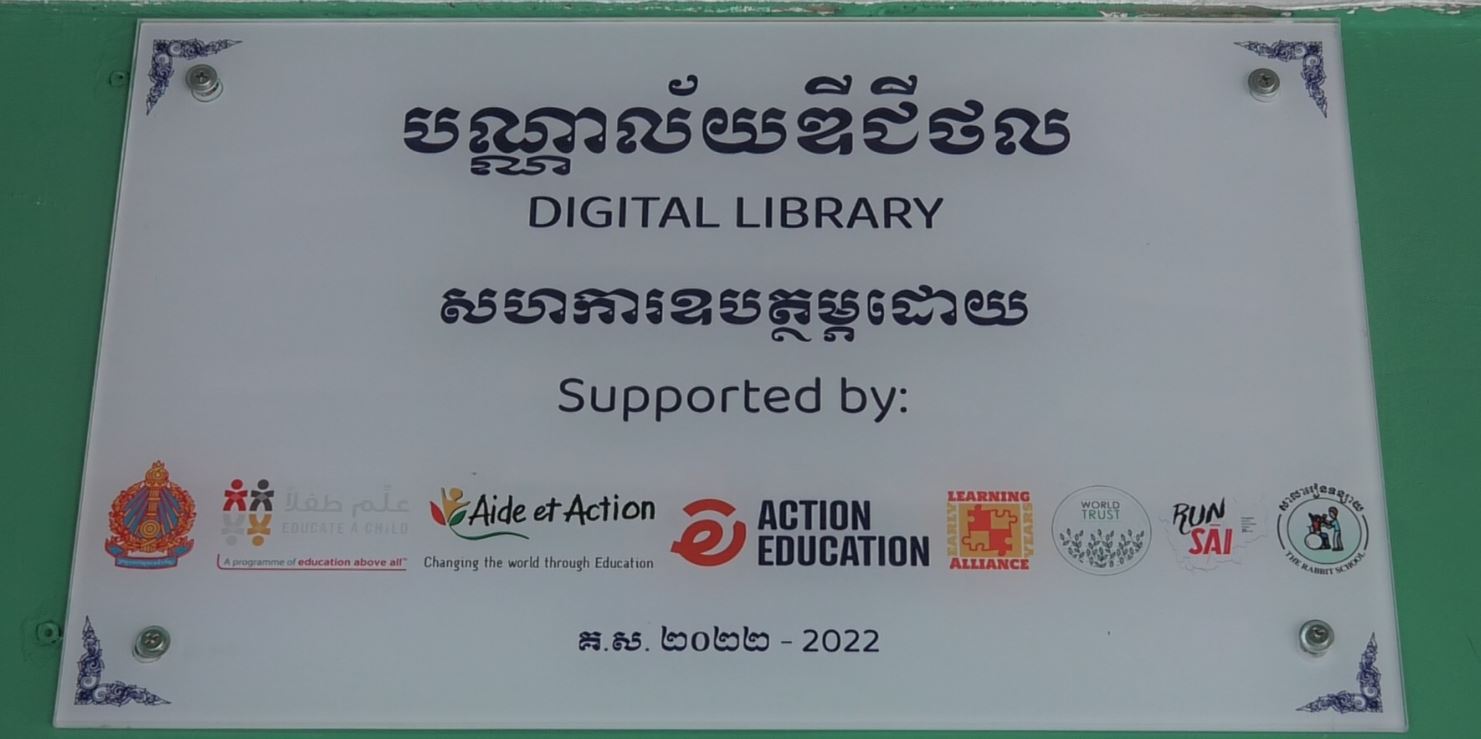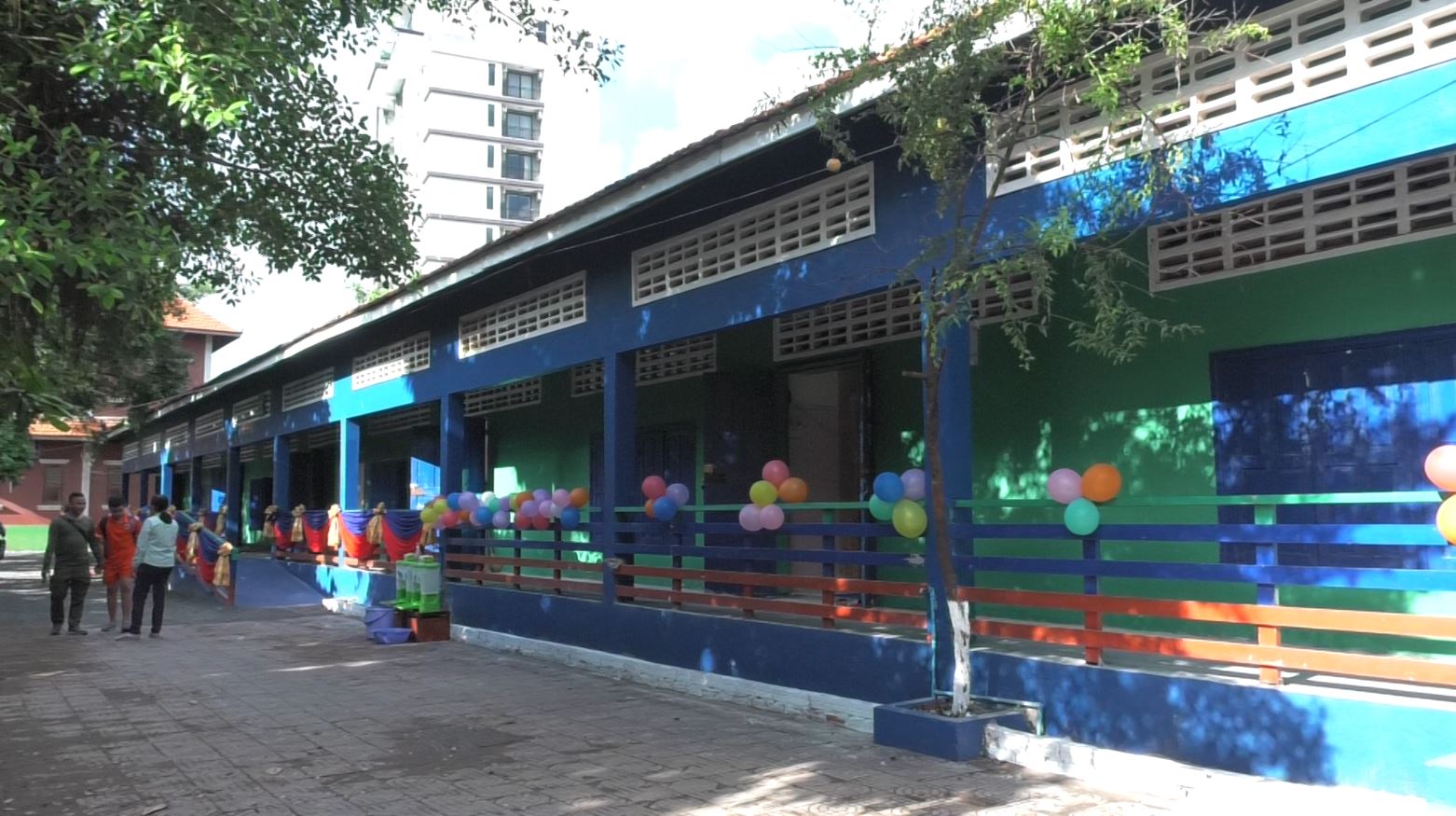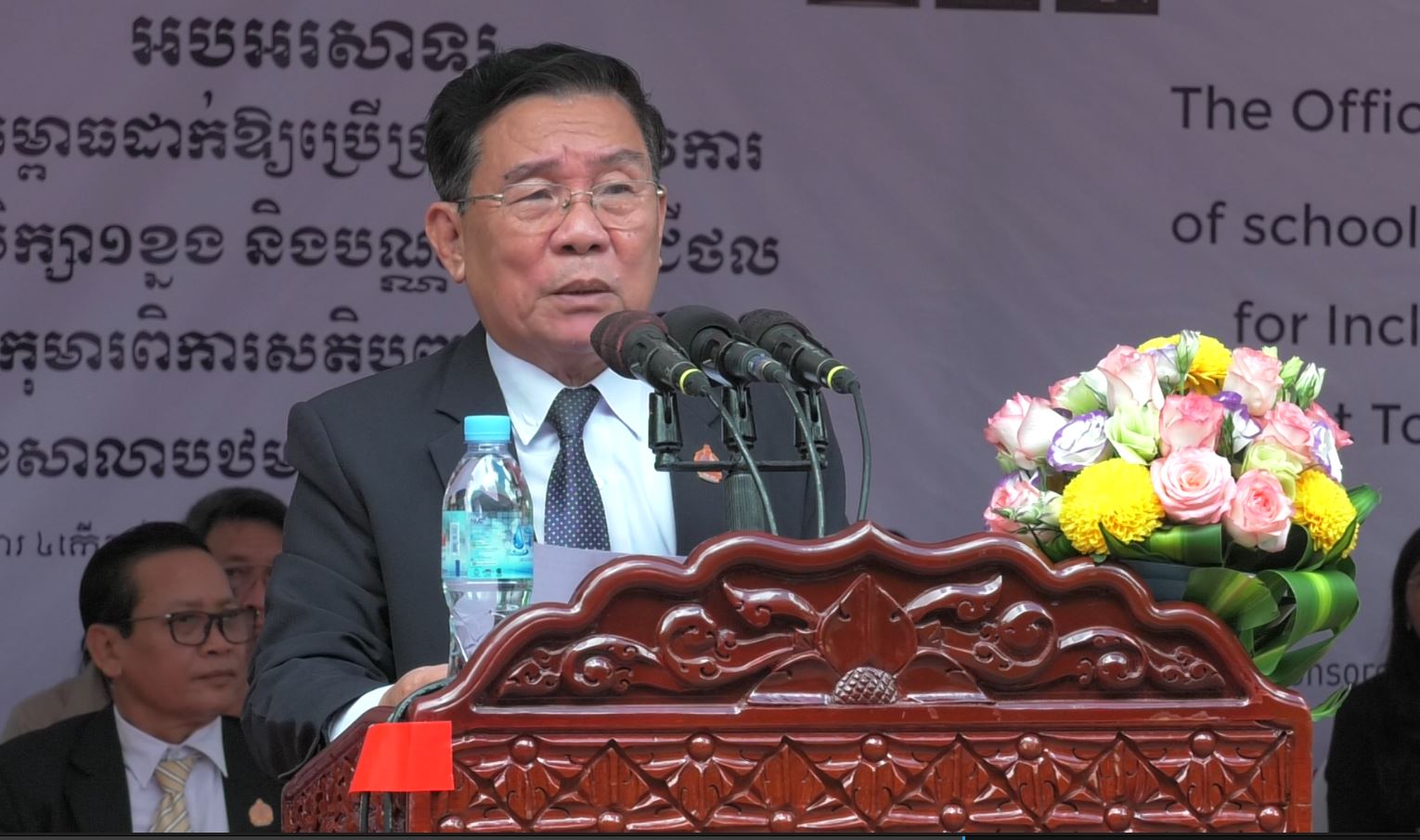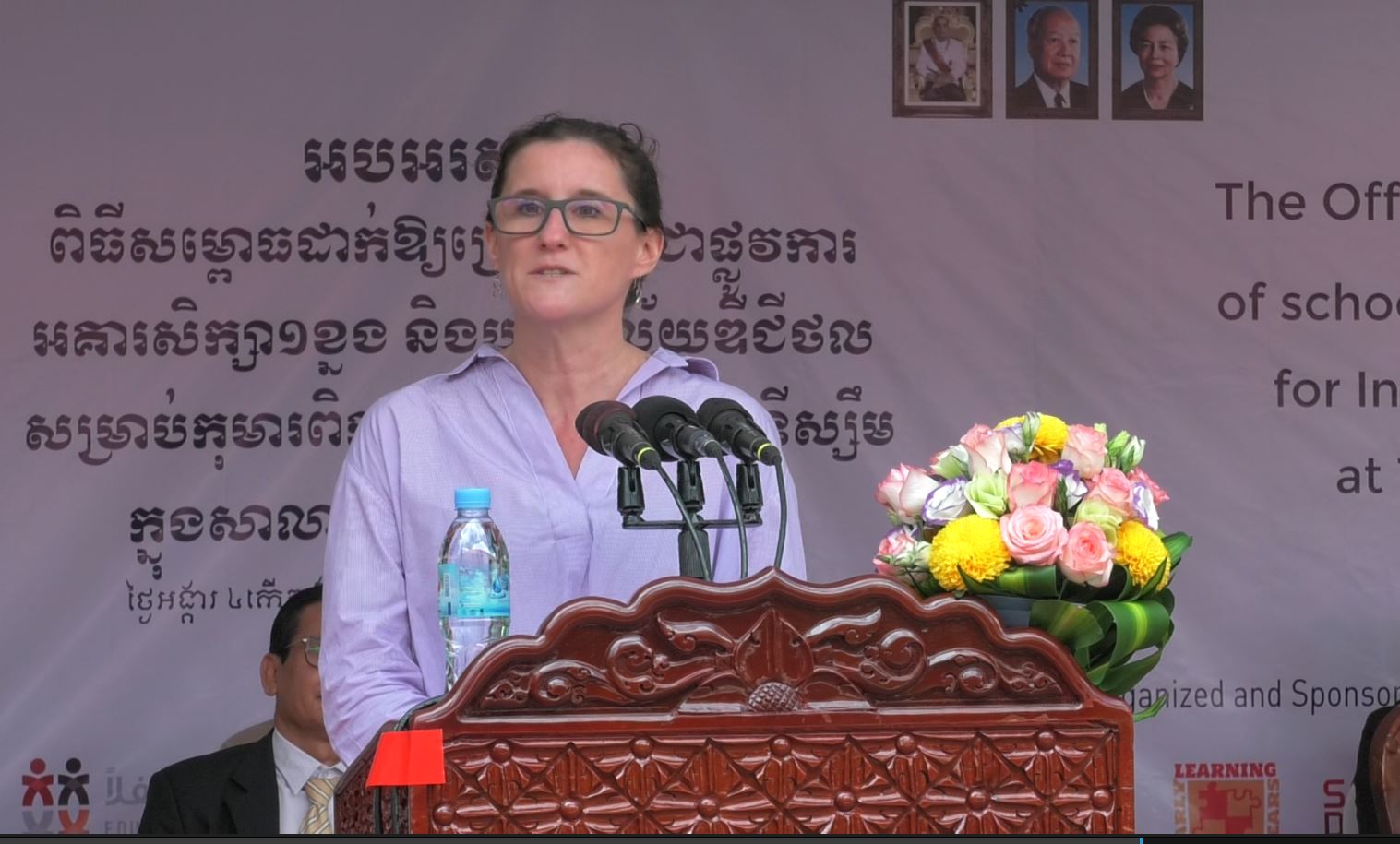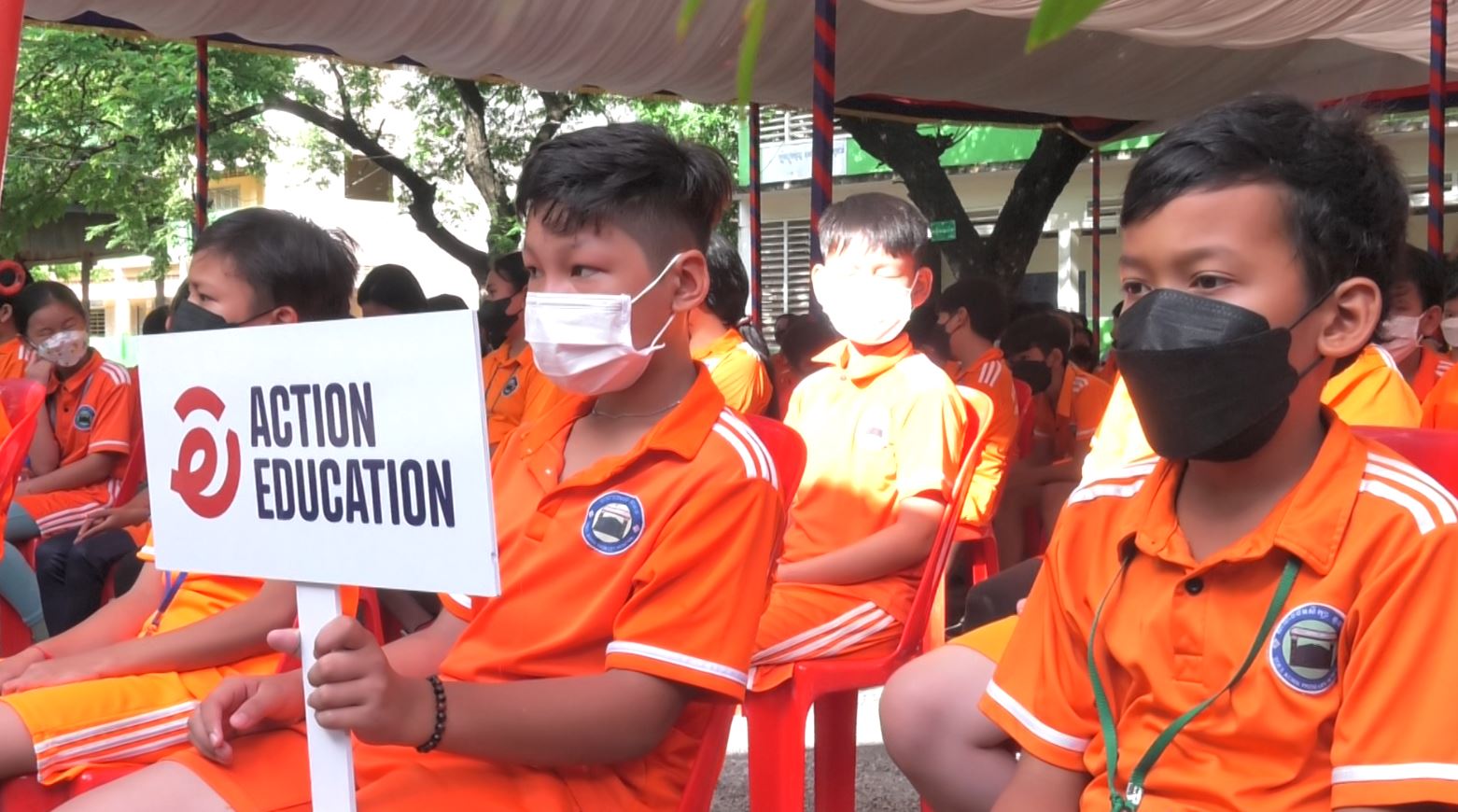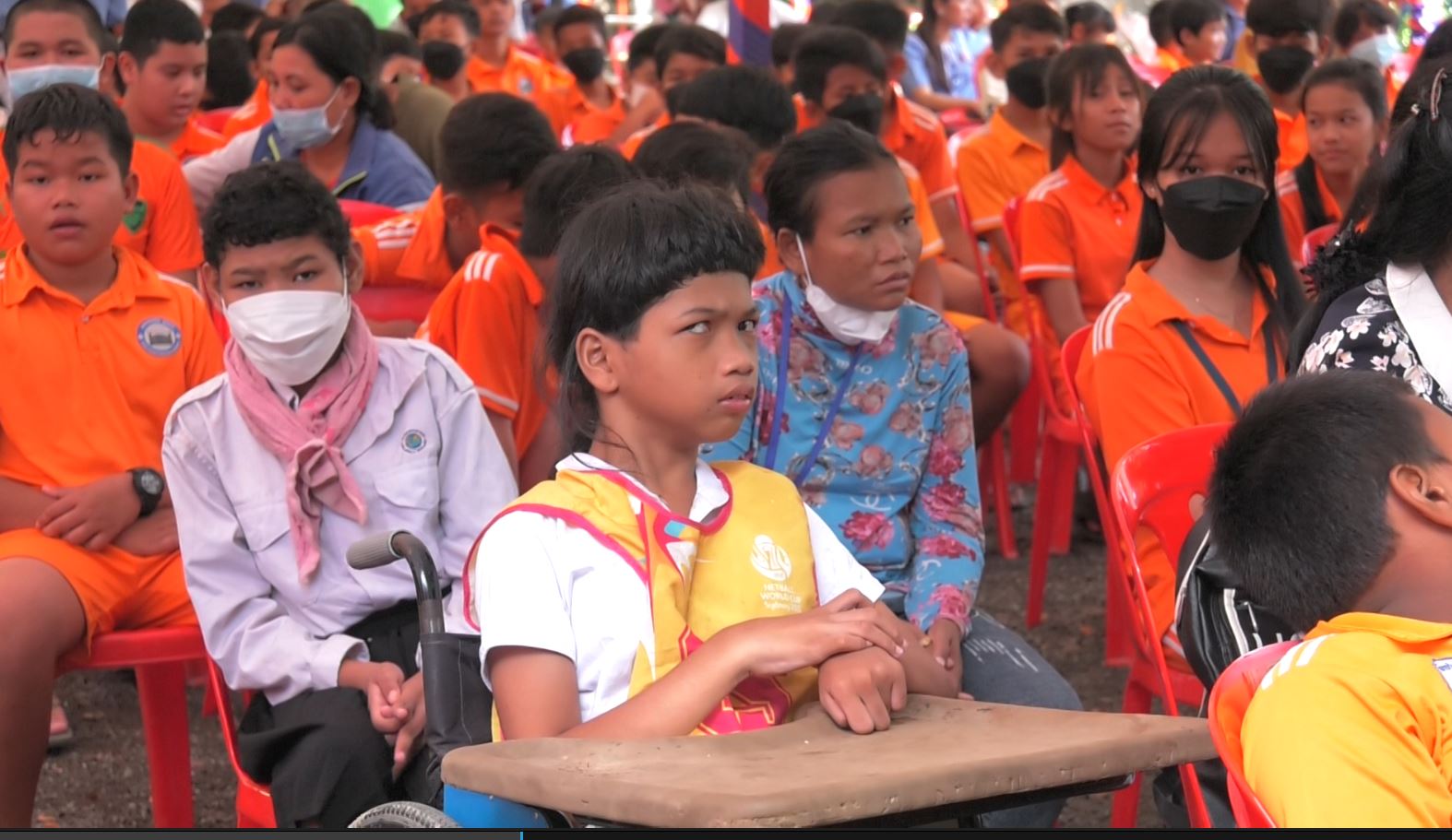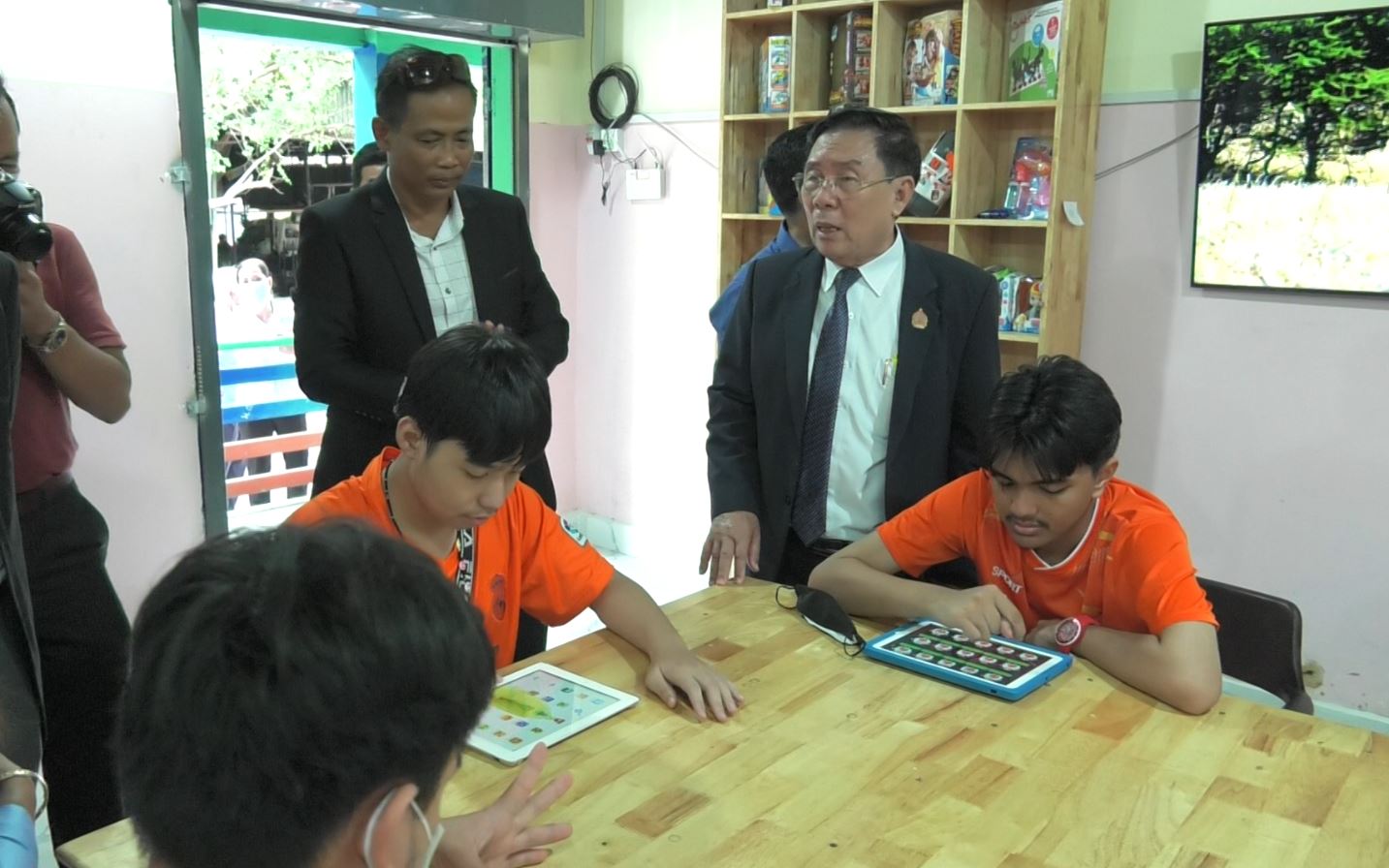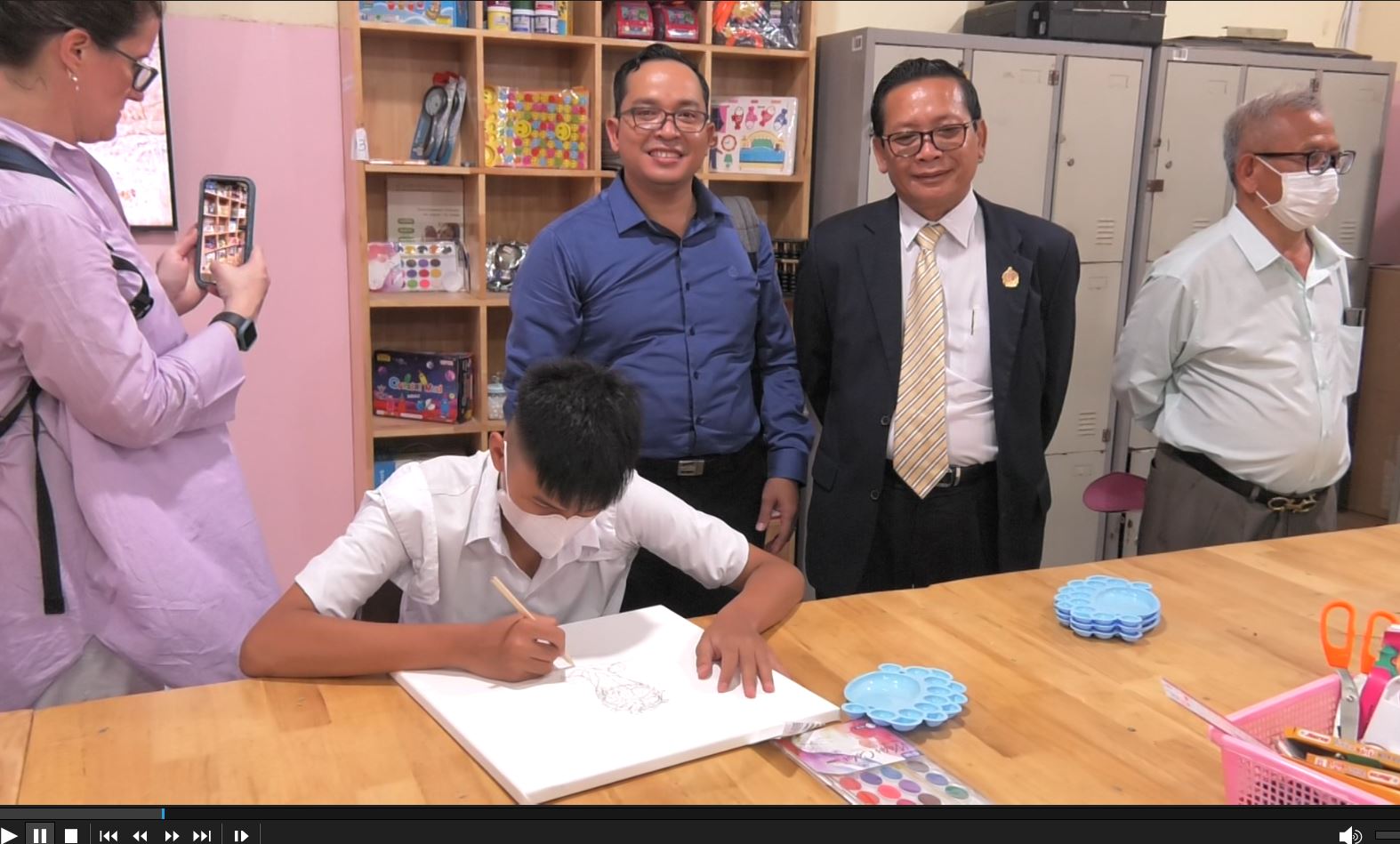New Digital Library and School Building for Children with Intellectual Disabilities is Inaugurated
PHNOM PENH: The Cambodian Consortium for Out of School Children, led by Aide et Action with financial support from Educate A Child, Rabbit School and the Royal Government of Cambodia, represented by the Ministry of Education, Youth and Sports, organized the inauguration of a digital library and school building for children with intellectual disabilities and autism at Tuol Kork Primary School on Tuesday, 30 August.
A five-room building in Toul Kork Primary School was renovated and converted into three classrooms, one sensory room, and a one-room digital library for the education of children with intellectual disabilities and autism. The Rabbit School Organization began renovations in 2019, which ran on until the beginning of 2022. The inauguration marks one of 70 target schools in the program.
More than US $46,000 was spent on this renovation work. Funding for this project was raised by Aide et Action, Educate A Child, World Trust, Cambodian singer and actor, Uon Pakthom (aka Sai), Mr. Chy Sila, and among parents.
The Rabbit School is a Cambodian NGO that was established in 1997 as a Pilot Project to provide education for children with special needs at the Nutrition Centre. In 2008, it started the first integrated class room in the Toul Kork Primary School and a Vocational Training Centre in Phnom Penh. Since 2014. it has been extending services to other provinces and currently has education projects in Kandal, Kampong Speu and Siem Reap provinces.
The Cambodian Consortium for Out of School Children is an initiative implemented in partnership with national and international NGOs to contribute to a comprehensive Cambodian inclusive education system that caters to every child, including children with disabilities, girls, indigenous children, children from poor families, children living in remote areas, and over-aged children.
The project is fully integrated with the education strategic plan of the Ministry of Education, Youth and Sports, focusing on the three strategic policies of equitable access, quality and relevance, and ownership and accountability. Cooperation between partner organizations and stakeholders is based on the needs of the community and the school, as well as the work experience of partner organizations.















